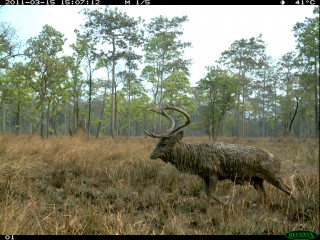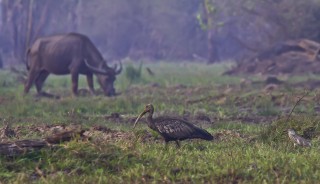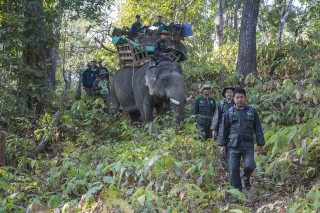WildView™
An Eye on Wildlife
Wildlife Conservation Society Menusearch for stories
- Browse Categories
- Art and Nature
- Assignments
- Bronx Zoo
- Crustaceans
- Education
- Environment
- Guanaco
- Herping from Home
- Horticulture
- In Memoriam
- New York Aquarium
- People
- Seasons
- Technology
- Throwback Thursday
- WCS 125th Anniversary
- WCS Chronicles
- Wild Places
- Wildlife
- Amphibians
- Antelope
- Arachnid
- Bats
- Bears
- Big Cats
- Birds
- Birds of Prey
- Bison
- Bovine
- Buffalo
- Canids, Dogs, Wolves
- Caribou
- Carnivores
- Cats
- Deer
- Dolphins
- Elephants
- Elk
- Endangered
- Fish
- Fox
- Giraffe
- Giraffes
- Great Apes
- Have No Fear
- Hippos
- Horses
- Insects
- Invertebrates
- Jellies
- Lemurs
- Mammals
- Marine Life
- Marsupials
- Mice and Rats
- Mongoose
- Monkeys
- Moose
- Muskoxen
- Ocean Giants
- Okapi
- Otters
- Pangolins
- Pigs
- Primates
- Rabbits, Hares, Pikas
- Rays
- Red Pandas
- Reptiles
- Rhinos
- Rodents
- Seals and Sea Lions
- Sharks
- Sheep and Goats
- Tapir
- Ungulates
- Walruses
- Wildlife
- Zebra
- Wildlife Health
subscribe

Antony Lynam
Wildlife Conservation Society
Antony Lynam joined the Wildlife Conservation Society in 1996. He has more than 20 years of experience implementing and advising wildlife conservation projects in Asia. Based in Bangkok, Thailand he serves as Regional Technical Advisor for wildlife protection and applied conservation projects in Cambodia, China, Indonesia, Lao PDR, Mongolia, Myanmar, Malaysia, and the Russian Far East. He has written training curricular and trained over one thousand Asian and African government research, wildlife and protected area staff, and university students in ecological methods, especially wildlife survey and monitoring, and protection techniques. He helped conduct the first national surveys for tigers in Malaysia and Myanmar. He helped organize and conduct some of the first multiagency wildlife law enforcement training courses in the region. Antony has written and helped implement recovery programs for tigers, Asian elephants and other endangered species, and currently serves as a technical consultant to the CITES Monitoring the Illegal Killing of Elephants (MIKE) Programme. He participated in Training of Trainers courses undertaken by the SMART partnership, and has led training exercises in SMART law enforcement monitoring in Asia and southern Africa. He has written or contributed to over 50 peer reviewed research and popular articles related to wildlife conservation.


